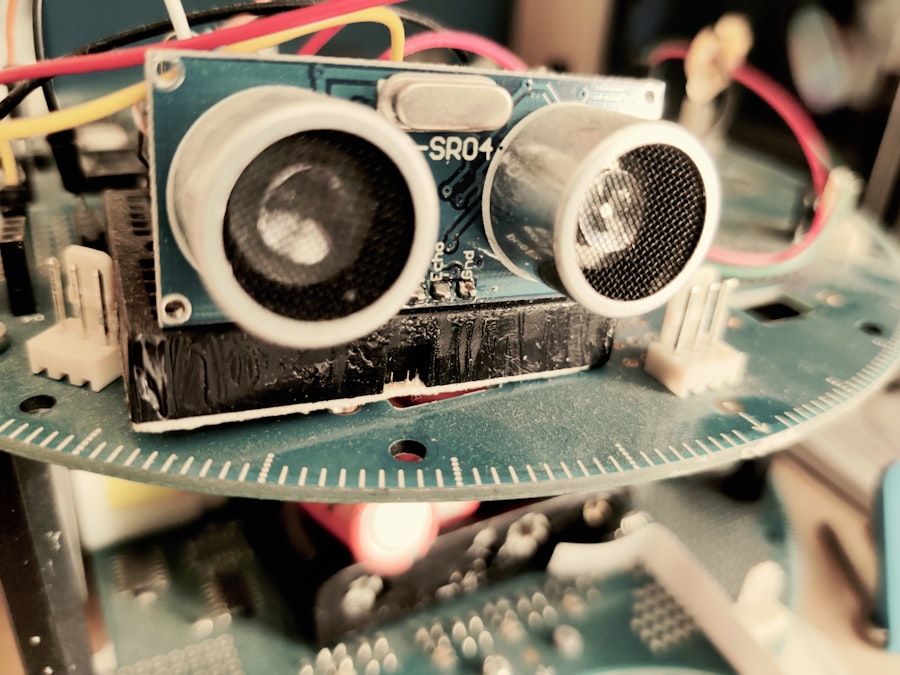Perception is a fascinating and complex phenomenon that shapes your understanding of the world around you. It is the process through which you interpret sensory information, allowing you to make sense of your environment. However, perception is not merely a passive reception of stimuli; it is an active construction of reality influenced by various factors, including your experiences, beliefs, and emotions.
This intricate interplay between perception and reality raises profound questions about how you perceive the world and how that perception can differ from objective reality. As you navigate through life, your perceptions can significantly impact your interactions and decisions. The way you perceive a situation can alter your emotional response and influence your behavior.
For instance, two individuals may witness the same event but interpret it differently based on their unique perspectives. This subjectivity highlights the importance of understanding perception as a dynamic process rather than a straightforward reflection of reality. By delving into the various elements that shape perception, you can gain insights into how your mind works and how to navigate the complexities of human experience.
Key Takeaways
- Perception is the process of interpreting sensory information to understand the world around us, but it is not always an accurate representation of reality.
- The brain plays a crucial role in shaping perception, as it processes and interprets sensory information to create our perception of the world.
- Emotions can significantly influence perception, as they can alter the way we interpret and respond to sensory information.
- Cultural and social factors can impact perception, as they shape our beliefs, values, and experiences that influence how we perceive the world.
- Memory can create illusions of perception, as it can be influenced and distorted over time, leading to inaccurate perceptions of past events.
The Role of the Brain in Perception
Your brain plays a pivotal role in shaping your perceptions, acting as the central processing unit that interprets sensory information. When you encounter stimuli—be it visual, auditory, or tactile—your brain receives this data and begins to analyze it. This process involves various regions of the brain working in concert to create a coherent understanding of what you are experiencing.
For example, when you see an object, your visual cortex processes the light patterns, while other areas help you recognize and categorize what you see. Moreover, the brain’s ability to filter and prioritize information is crucial for effective perception. Given the overwhelming amount of sensory data you encounter daily, your brain must decide what to focus on and what to ignore.
This selective attention can lead to perceptual biases, where certain aspects of an experience are emphasized while others are downplayed or overlooked. Understanding how your brain processes information can help you become more aware of the potential distortions in your perception and encourage a more nuanced view of reality.
The Influence of Emotions on Perception

Emotions play a significant role in shaping how you perceive the world around you. Your emotional state can color your interpretations of events and experiences, often leading to skewed perceptions. For instance, when you are feeling happy, you may view situations more positively and be more open to new experiences.
Conversely, if you are feeling anxious or sad, your perception may become more negative, causing you to focus on potential threats or disappointments. This emotional influence on perception is not merely anecdotal; research has shown that emotions can alter neural processing in the brain. When you experience strong emotions, such as fear or joy, specific brain regions become activated, affecting how you interpret sensory information.
This means that your emotional responses can create a feedback loop, where your feelings shape your perceptions, which in turn influence your emotions. By recognizing this interplay between emotions and perception, you can develop strategies to manage your emotional responses and cultivate a more balanced view of reality.
The Impact of Cultural and Social Factors on Perception
| Factors | Impact on Perception |
|---|---|
| Cultural Norms | Shapes how individuals interpret and understand the world around them |
| Language | Influences the way people categorize and perceive the world |
| Religion | Affects beliefs and values, which in turn impact perception |
| Social Class | Can lead to different perspectives and interpretations of social situations |
| Media and Technology | Shapes perceptions through the information and images it presents |
Cultural and social factors significantly influence how you perceive the world.
For example, individuals from collectivist cultures may prioritize group harmony and relationships in their perceptions, while those from individualistic cultures may focus more on personal achievement and autonomy.
These cultural lenses can lead to vastly different interpretations of the same situation. Social factors also play a crucial role in shaping perception. The opinions and behaviors of those around you can influence how you perceive events and experiences.
For instance, if your friends express skepticism about a new idea or trend, you may be more likely to adopt a similar stance due to social conformity. Additionally, media representations and societal narratives can further shape your perceptions by framing issues in specific ways. By becoming aware of these cultural and social influences, you can cultivate a more critical perspective on your perceptions and challenge any biases that may arise.
The Illusion of Memory and Perception
Memory is intricately linked to perception, yet it is often fraught with illusions that can distort your understanding of past events. When you recall an experience, you are not merely retrieving a static record; instead, you are reconstructing that memory based on various factors, including current emotions and contextual cues. This reconstruction process can lead to inaccuracies and distortions in how you perceive past events.
Research has shown that memories can be influenced by suggestion and misinformation, leading to false recollections. For example, if someone suggests a detail about an event that did not occur, you may incorporate that detail into your memory without realizing it. This phenomenon highlights the malleability of memory and its impact on perception.
By recognizing that your memories may not be as reliable as you think, you can approach past experiences with a more critical eye and be open to the possibility that your perceptions may not align with reality.
The Role of Bias in Shaping Perception

Bias is an inherent part of human cognition that significantly shapes your perceptions. Cognitive biases are systematic patterns of deviation from norm or rationality in judgment, leading you to make decisions based on flawed reasoning or incomplete information. These biases can manifest in various ways, such as confirmation bias—where you seek out information that supports your existing beliefs while ignoring contradictory evidence.
Your biases can profoundly influence how you perceive situations and people. For instance, if you hold a negative stereotype about a particular group, this bias may color your interactions with individuals from that group, leading to misinterpretations or unfair judgments.
This self-awareness is crucial for fostering empathy and improving interpersonal relationships.
The Connection Between Perception and Decision Making
Your perceptions play a critical role in decision-making processes. The way you interpret information influences the choices you make in various aspects of life, from personal relationships to professional endeavors. When faced with a decision, your perceptions guide your evaluation of options and potential outcomes.
If you perceive a situation as threatening or risky, for example, you may be more inclined to avoid it altogether. Moreover, cognitive biases can further complicate decision-making by distorting your perceptions of risk and reward. You may overestimate the likelihood of negative outcomes based on past experiences or succumb to optimism bias by underestimating potential challenges.
Understanding this connection between perception and decision-making can empower you to make more informed choices by encouraging critical thinking and self-reflection.
The Illusion of Control and Perception
The illusion of control is another fascinating aspect of perception that affects how you navigate life’s uncertainties. Many people tend to overestimate their ability to control events or outcomes, leading to skewed perceptions of their influence over situations. This illusion can provide a sense of comfort but may also result in disappointment when reality does not align with expectations.
For instance, if you believe that positive thinking alone will lead to success in a particular endeavor, you may overlook external factors that contribute to outcomes. This overconfidence can lead to poor decision-making or risk-taking behavior based on an inflated sense of control. By recognizing the limits of your control over certain situations, you can cultivate a more realistic perspective that allows for adaptability and resilience in the face of uncertainty.
The Power of Suggestion and Perception
The power of suggestion is a compelling force that shapes perception in profound ways. Your perceptions can be influenced by external cues or suggestions from others, often without your conscious awareness. This phenomenon is evident in various contexts, from advertising to social interactions.
For example, if someone suggests that a particular product is highly effective or desirable, you may be more likely to perceive it positively based on that suggestion alone. In therapeutic settings, suggestion plays a crucial role in techniques such as hypnosis or guided imagery. These methods leverage the power of suggestion to alter perceptions and promote healing or behavioral change.
By understanding how suggestion influences perception, you can become more discerning about the information you consume and the messages you internalize.
The Connection Between Perception and Belief Systems
Your belief systems are deeply intertwined with your perceptions, shaping how you interpret experiences and understand the world around you. Beliefs act as filters through which you view reality; they influence what information you prioritize and how you make sense of events. For instance, if you hold strong beliefs about justice or fairness, these convictions will shape your perceptions of social issues and interactions with others.
Moreover, belief systems can create echo chambers where individuals seek out information that aligns with their views while dismissing contradictory evidence. This phenomenon reinforces existing perceptions and makes it challenging to consider alternative perspectives. By examining your belief systems critically and being open to new ideas, you can expand your understanding of reality and foster greater empathy towards others.
Strategies for Overcoming Illusions of Perception
Overcoming illusions of perception requires intentional effort and self-awareness. One effective strategy is mindfulness practice, which encourages present-moment awareness without judgment. By cultivating mindfulness, you can develop greater clarity about your thoughts and feelings, allowing for more accurate perceptions of experiences.
Additionally, seeking diverse perspectives can help challenge biases and broaden your understanding of reality. Engaging with individuals from different backgrounds or viewpoints encourages critical thinking and fosters empathy. Finally, maintaining a healthy skepticism towards your memories and beliefs can empower you to question assumptions and remain open to new information.
In conclusion, perception is a multifaceted process influenced by various factors ranging from brain function to cultural context. By understanding these influences and actively working to overcome perceptual illusions, you can cultivate a more nuanced understanding of reality that enhances both personal growth and interpersonal relationships.
In exploring the concept that “Perception is not reality,” it’s essential to consider the broader implications of how our minds interpret the world around us. A related article that delves into the intricacies of human perception and its impact on our understanding of reality can be found on Unplugged Psychology. This article provides valuable insights into the psychological mechanisms that shape our perceptions and how they can often lead to misconceptions. For a deeper understanding, you can read more about these fascinating topics by visiting Unplugged Psychology.
FAQs
What is perception?
Perception refers to the way in which we interpret and make sense of the sensory information we receive from the world around us. It involves the process of organizing and interpreting sensory information in order to understand our environment.
How does perception differ from reality?
Perception is subjective and can be influenced by various factors such as past experiences, cultural background, and personal beliefs. Reality, on the other hand, is the actual state of things, independent of our perception of it. This means that our perception may not always align with the objective reality of a situation.
What are some factors that can influence perception?
Factors that can influence perception include personal experiences, cultural background, emotions, expectations, and cognitive biases. These factors can shape the way we interpret and make sense of the world around us.
Why is it important to recognize that perception is not reality?
Recognizing that perception is not reality is important because it allows us to be more open-minded and consider alternative perspectives. It also helps us to be more critical of our own perceptions and to recognize that they may not always align with the objective reality of a situation.
How can we overcome the limitations of perception?
We can overcome the limitations of perception by being open to new information, challenging our own biases and assumptions, seeking out diverse perspectives, and being mindful of the factors that can influence our perception. Developing critical thinking skills and being willing to reconsider our own beliefs can also help us to overcome the limitations of perception.




